Maximilien de Robespierre: A True Revolutionary Man Or A Madman?
A. Sutherland - AncientPages.com - Maximilien de Robespierre (May 6, 1758 – July 28, 1794) was a French philosopher, journalist, scholar, judge, lawyer, and an important official during the French Revolution (1789–1799).
Robespierre was one of the principal architects of the Reign of Terror, and many have wondered: Was he a revolutionary or a madman?
He was born on May 6, 1758, at Arras, in the north of France. He studied the law, became a lawyer at 21 years old, and was the leader of the radical Jacobins in the National Assembly.
His main goal was to defend people's rights, especially the more modest ones. Soon, Robespierre became famous, calling for political change in the French monarchy.
This is a preview of our premium article available only to members of Ancient Pages.
Become a member to read more - Click here
If you are already a member and have logged in to your account, you can access the article here
More From Ancient Pages
-
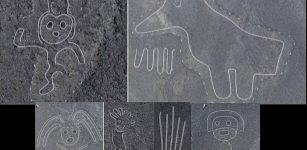 168 Unknown Geoglyphs Discovered In The Nazca Desert By Drones
Archaeology | Dec 19, 2022
168 Unknown Geoglyphs Discovered In The Nazca Desert By Drones
Archaeology | Dec 19, 2022 -
 Why Did Socrates Drink Poison And Commit Suicide?
Ancient History Facts | Apr 21, 2018
Why Did Socrates Drink Poison And Commit Suicide?
Ancient History Facts | Apr 21, 2018 -
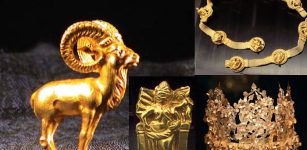 Priceless Artifacts From The Bactrian Hoard Are Missing – Where Are They?
Artifacts | Apr 3, 2022
Priceless Artifacts From The Bactrian Hoard Are Missing – Where Are They?
Artifacts | Apr 3, 2022 -
 Baalbek: Were The Megaliths Put In Place Under Herod?
Archaeology | May 27, 2019
Baalbek: Were The Megaliths Put In Place Under Herod?
Archaeology | May 27, 2019 -
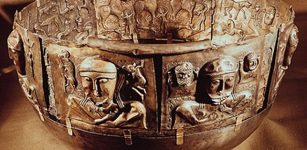 Gundestrup Cauldron: Great Gilded Silver Vessel Decorated With Scenes Derived From Celtic Mythology
Artifacts | May 30, 2016
Gundestrup Cauldron: Great Gilded Silver Vessel Decorated With Scenes Derived From Celtic Mythology
Artifacts | May 30, 2016 -
 Subterranean Kingdom Of Shahmaran And The Land Of The Snakes
Featured Stories | Aug 17, 2020
Subterranean Kingdom Of Shahmaran And The Land Of The Snakes
Featured Stories | Aug 17, 2020 -
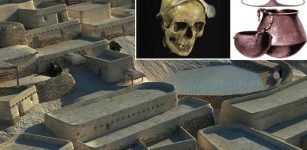 Societies In Iberian Peninsula Deployed “Escape Economics” 4,000-Year-Old
Archaeology | Sep 28, 2022
Societies In Iberian Peninsula Deployed “Escape Economics” 4,000-Year-Old
Archaeology | Sep 28, 2022 -
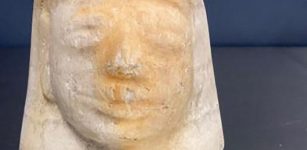 3,000-Year-Old Ancient Egyptian Artifact Seized By US Agents In Memphis
Archaeology | Aug 29, 2022
3,000-Year-Old Ancient Egyptian Artifact Seized By US Agents In Memphis
Archaeology | Aug 29, 2022 -
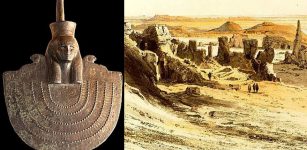 City Of Sais: Prehistoric Prestigious Cult Center Of Northern Egypt
Featured Stories | Oct 31, 2016
City Of Sais: Prehistoric Prestigious Cult Center Of Northern Egypt
Featured Stories | Oct 31, 2016 -
 4,700 ‘Forest Islands’ Created By Amazon’s Earliest Humans
Archaeology | Apr 15, 2020
4,700 ‘Forest Islands’ Created By Amazon’s Earliest Humans
Archaeology | Apr 15, 2020 -
 Was Tintagel Castle A Fortress Used By Iconic Hero King Arthur?
Featured Stories | Jul 12, 2022
Was Tintagel Castle A Fortress Used By Iconic Hero King Arthur?
Featured Stories | Jul 12, 2022 -
 On This Day In History: Knights Templar Arrested – Oct 13, 1307
News | Oct 13, 2015
On This Day In History: Knights Templar Arrested – Oct 13, 1307
News | Oct 13, 2015 -
 Impressive Kaymakli Underground City – An Ancient Hiding Place
Featured Stories | Mar 3, 2016
Impressive Kaymakli Underground City – An Ancient Hiding Place
Featured Stories | Mar 3, 2016 -
 Unique Pig-Shaped Figurine Found In East China Was Probably A Child’s Toy 6,000-Years Ago
Archaeology | Jun 9, 2023
Unique Pig-Shaped Figurine Found In East China Was Probably A Child’s Toy 6,000-Years Ago
Archaeology | Jun 9, 2023 -
 Streets Of Ancient Rome Were Very Dangerous
Ancient History Facts | Feb 29, 2016
Streets Of Ancient Rome Were Very Dangerous
Ancient History Facts | Feb 29, 2016 -
 Idiots Were Not Allowed To Vote In Ancient Athens
Ancient History Facts | May 30, 2016
Idiots Were Not Allowed To Vote In Ancient Athens
Ancient History Facts | May 30, 2016 -
 Medieval Wooden Stave Churches In Norway Are Older Than Previously Believed
Archaeology | Nov 8, 2019
Medieval Wooden Stave Churches In Norway Are Older Than Previously Believed
Archaeology | Nov 8, 2019 -
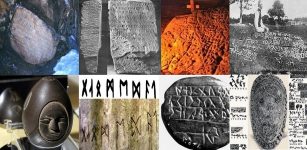 10 Mysterious Ancient Stones In North America That Could Re-Write History
Civilizations | May 25, 2020
10 Mysterious Ancient Stones In North America That Could Re-Write History
Civilizations | May 25, 2020 -
 Remarkable Giant Minoan Structure Found On Top Of Papoura Hill, Crete
Archaeology | Jun 11, 2024
Remarkable Giant Minoan Structure Found On Top Of Papoura Hill, Crete
Archaeology | Jun 11, 2024 -
 Skegriedösen (Skegrie Dolmen) – 5,000-Year-Old Stone Chamber Tomb In Southern Sweden
Featured Stories | Feb 11, 2023
Skegriedösen (Skegrie Dolmen) – 5,000-Year-Old Stone Chamber Tomb In Southern Sweden
Featured Stories | Feb 11, 2023



